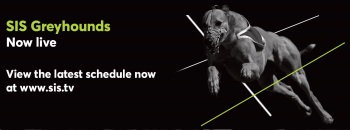Following audits in August and September and the successful completion of follow-up work, confirmation has been received from the United Kingdom Accreditation Service (UKAS) that GBGB’s accreditation for the licensing and certification of greyhound tracks is maintained.
GBGB was accredited in March 2010, to an international standard for licensing (or certifying) bodies – EN45011, ahead of the introduction of the Welfare of Racing Greyhounds regulations 2010. All aspects of this standard were met by GBGB in 2010, in surveillance audits in 2011 and 2012, and again in a full reassessment in 2013. In 2014, this standard was updated and replaced with ISO standard 17065. GBGB underwent a full audit to assess all aspects of their procedures against this new standard and confirmation of accreditation was received in March 2015. The two inspections which took place this year together formed the first surveillance audit under the new standard.
UKAS assessors reviewed the relevant procedural documentation and records relating to GBGB’s track licensing and inspection processes, as well as the competence and training records for staff involved in these areas. The audit also focused on the processes employed by GBGB to ensure that impartiality and independence of these activities is monitored and maintained.
In post inspection reports UKAS commented on GBGB’s quality management system stating that it was ‘well maintained and well implemented’, and that ‘personnel currently in the key roles of inspection and review, particularly, are all highly experienced and knowledgeable with regards to greyhound management and racing, with a rigorous and well managed selection, induction and approval system in place’.
GBGB CEO Barry Faulkner said:
“The fact that GBGB continues to maintain accreditation and has again received positive feedback from UKAS, demonstrates not only the robustness and effectiveness of the systems we have in place but the effort that goes into developing these year on year. It is a testament to the hard work and commitment of the staff involved in the process, both at Head Office and out in the field which enable our inspecting and licensing processes to be both effective and efficient. We’re delighted that UKAS have again endorsed that view.”












